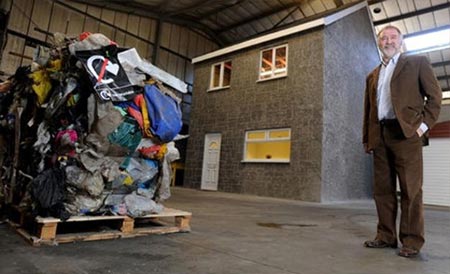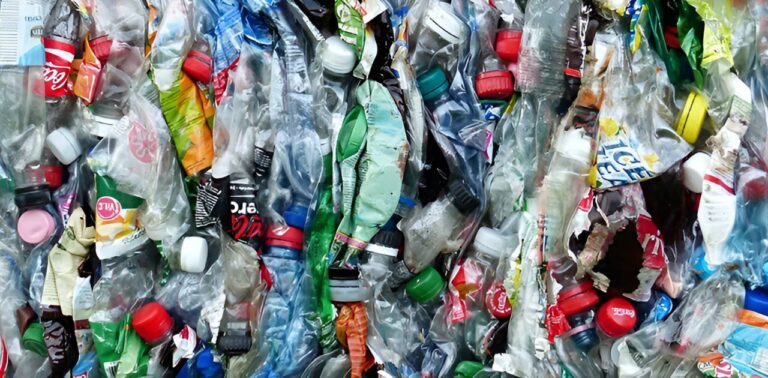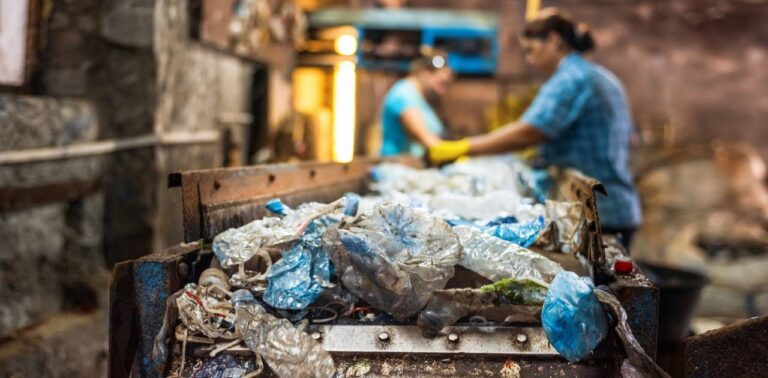In recent years, the construction industry has undergone significant transformation, driven by growing concerns about sustainability and the environment. Among the most promising innovations is the use of recycled plastic in housing construction. One of the pioneering companies in this field is Affresol, a construction company specializing in modular homes, which has developed an innovative technology using recycled plastic as the main building material.

The Technology Behind Recycled Plastic Houses
Affresol has introduced a new material called Thermo Poly Rock (TPR), which combines recycled plastic with specific minerals (the exact composition of which is kept secret by the company). This material offers several advantages over traditional building materials such as concrete. TPR is known for its low carbon footprint, being lighter and more durable than concrete. It also offers essential properties for modern construction, such as fire resistance, waterproofing and excellent thermal insulation.
One of the most notable features of TPR is the amount of recycled plastic used in its composition. Each home built with this material incorporates up to 18 tons of recycled plastic, while modular options use up to 4 tons. This not only reduces the amount of plastic waste in the environment, but also offers a viable and sustainable alternative for civil construction.
Economic and Ecological Advantages
In addition to the environmental benefits, recycled plastic homes offer significant economic advantages. TPR constructions can be up to 12% cheaper than conventional concrete constructions, making them an attractive option for both consumers and developers. The cost savings do not compromise the quality or durability of the buildings, making these homes a smart and sustainable solution.
Another important advantage is the speed with which these homes can be built. Affresol promises to deliver a fully completed home in just four days, a considerably shorter time compared to traditional construction methods. This makes recycled plastic homes an ideal option for situations that require rapid construction, such as social housing projects or reconstruction in areas affected by natural disasters.
Environmental Impact
The use of recycled plastic in construction represents a significant step forward in the fight against plastic pollution. Plastic is one of the most persistent materials in the environment, taking centuries to decompose. By using large quantities of recycled plastic in housing construction, Affresol is helping to reduce the amount of plastic waste that ends up in landfills or the oceans.
Furthermore, the TPR production process is designed to be environmentally responsible. Manufacturing the material emits less carbon than producing concrete, contributing to reducing the carbon footprint of the construction industry. Recycled plastic houses also have the advantage of being recyclable at the end of their useful life, avoiding waste of materials and promoting a continuous cycle of resource reuse.
Watch a video showing the strength of TPR:
The Future
The concept of recycled plastic homes is still relatively new, but it is gaining popularity as demand for sustainable solutions grows. Affresol is at the forefront of this innovation, and its technology has the potential to transform the way homes are built around the world. Affresol Managing Director Ian McPherson points out that every country faces a waste problem, and recycled plastic technology offers a unique opportunity to turn this challenge into a viable housing solution.
In addition to residential applications, TPR can be used in a variety of other modular constructions, such as offices, schools and temporary shelters. The material’s versatility allows it to be adapted to different needs and environments, further expanding its potential for positive impact on the environment and society.
Challenges and Opportunities
While recycled plastic homes offer numerous advantages, widespread adoption of this type of construction still faces challenges. One of the main obstacles is acceptance by the public and the market, which are often hesitant to adopt new technologies until they have been extensively tested and proven. However, as more projects are successfully completed and the benefits of recycled plastic homes become more evident, demand for these buildings is expected to grow significantly.
Another challenge is the need to expand infrastructure for plastic recycling and TPR production. Creating an efficient network to collect, process and distribute recycled plastic is essential to ensure that this technology can be widely adopted. With adequate investment and the support of public policies focused on sustainability, it is possible to overcome these challenges and promote the mass adoption of recycled plastic homes.
A Response to the Demands of the 21st Century
Recycled plastic homes represent an innovative and necessary response to the environmental and social demands of the 21st century. With increasing urbanization and the urgent need for sustainable housing solutions, technologies such as TPR offer a promising alternative that combines cost-effectiveness, speed of construction and environmental responsibility.
By transforming plastic waste into durable, recyclable building materials, Affresol and other pioneers in this field are redefining the future of construction. These innovations not only help mitigate the environmental impact of plastic waste, but also provide new opportunities for the development of affordable and sustainable housing around the world.
In conclusion, the recycled plastic house is not just a passing trend, but a practical and sustainable solution that has the potential to transform the construction sector and contribute significantly to the preservation of the environment.
Check out other interesting facts about recycling clicking here.
Learn how to make art by recycling, Click here.
Summary




I don't have my own house. I would like to know if there is financing for this type of house. How can I do it? I would like one.
It would be much more economical for the government in housing programs and would help the environment in the
control of recyclable waste. Congratulations to those responsible for the project.